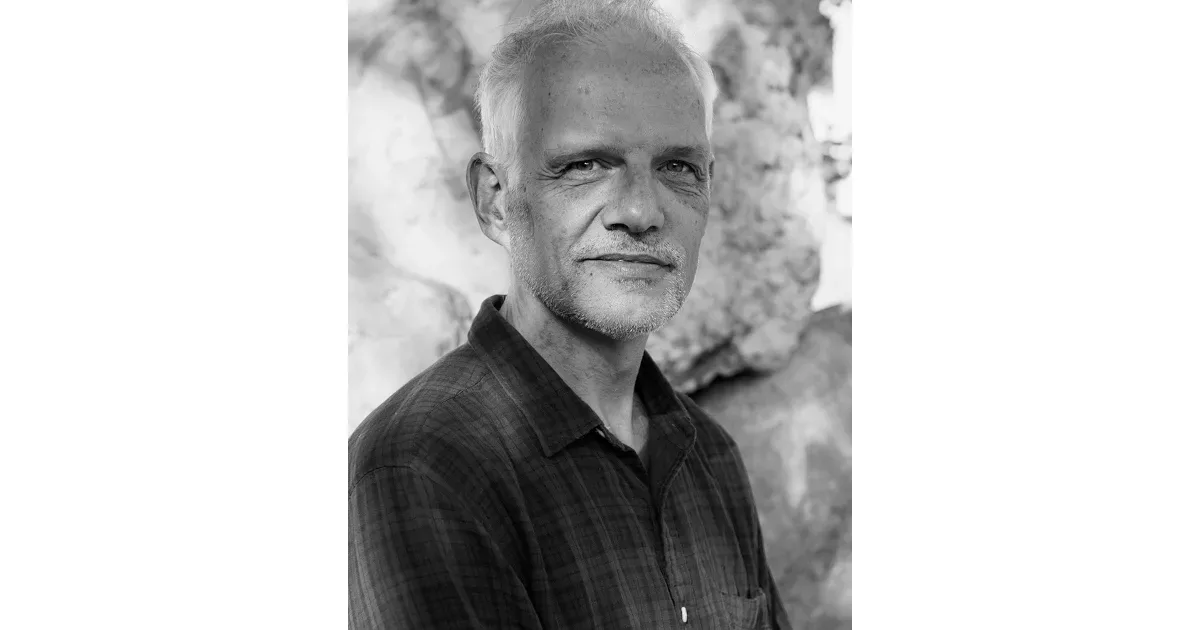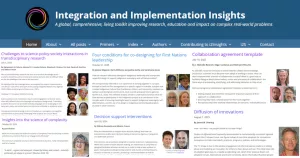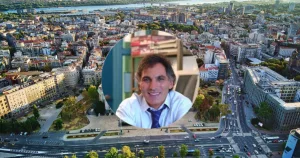Pablo Jensen: “Science is too important to be left to scientists alone”
With the association Sciences Citoyennes and the Mouvement pour des Savoirs Engagés et Reliés, physicist Pablo Jensen is working for greater citizen participation in decisions concerning scientific research

Why are you a member of the board of the Sciences Citoyennes association?
Pablo Jensen: The scientific activity is too important to be left in the hands of scientists alone. That is what Sciences Citoyennes is all about: opening up science and working with citizens. In France, it is, to my knowledge, the only long-term association in this field: it has been created in 2002. At the end of the 1990s, I launched Cafés des Sciences in Lyon, as did many others elsewhere, but this type of initiative, driven by one or two individuals, dies out when these individuals want to move on to something else. It is really important that, at least at the national level in France, there is a structure that embodies this desire to open up the academy to society, without being subservient to the academy or the institutions.
What is the underlying motivation?
P. J.: Let’s take the example of GMOs. A technique that was of interest to biologists, for exploring living organisms and fundamental sciences in the laboratory, has been appropriated by industrialists for applications on millions of hectares. The first thought that come to scientists is: “It is good that something we found in the laboratory can be applied.” And they are often blind to the fact that what is done outside the laboratory is very different from what is done in the laboratory: GMOs in the field raise many new questions, as have shown activists, allied with professional researchers, in this case ecologists. Generally speaking, the social consequences of all scientific work concern many citizens, and this is set to increase with the ecological crisis. So, a social control on science is important, in a democratic way.
Do you feel that science is not enough controlled by society?
P. J.: Today, the sciences are obviously in society, because they depend on public budgets and have public consequences, but this is done in ways that are not very democratic. For example, it is hard to know who really decides where public funding goes. Historically, with modern science came the ideas of research autonomy and laboratory confinement. This has produced sciences which are not intrinsically bad, but which are intrinsically dangerous: the kind of knowledge they produce lends itself very well to technological acceleration because it is so entangled with technology. As soon as you create knowledge that is totally dependent on technology, especially because of the laboratory equipment you use, it is very natural to contribute, thanks to this knowledge, to the technology and acceleration that endangers the habitability of the planet. Everything should not be put on the same level, but there is a strong trend that needs to be noted, and which the scientific community needs to reflect on.
What are the actions of Sciences Citoyennes?
P. J.: There are three main areas: the democratization of science, research ethics and the scientific third sector. I am directly involved in the first only. We are working with MPs and senators, who are promoting a law to have 10% of the public research budget decided by a citizens’ convention. And Sciences Citoyennes is also making a major contribution to support the Mouvement pour des Savoirs Engagés et Reliés (MSER).
What is it all about?
P. J.: It is an informal group of organizations, born of the desire to open up science and enable exchanges with civil society. That is what the citizen science cafés were already doing to some extent. But today, we are focusing on the ecological question, for which openness is crucial: the consequences will affect everyone, and it is crucial to co-construct solutions. Our main idea is that all knowledge is engaged and connected, because all knowledge is situated in a world that has helped to produce it and makes it relevant. We would like everyone to be convinced of this, the academic world, to begin with.
What do you mean?
P. J.: Many researchers, especially in the “hard” sciences, believe that they are working to create neutral, objective knowledge, which society can then use for its own needs. It’s not up to us to say what should become of particle physics, biology or chemistry, but we would like these researchers to reflect on the world they are building with the knowledge they are developing.
But some of them are already doing so?
P. J.: Yes. I am thinking, for example, of a fellow astrophysicist who was dissatisfied with the impact of his work, and who used his simulation tools to work with ecologists who monitor and model the movements of animal populations.
However, if the researcher had not first developed and mastered tools in astrophysics, he would have been less useful in ecology: doesn’t fundamental, abstract science create tools for other fields?
P. J.: This is a classic argument, but it seems to me to be an a posteriori justification for work that appeals to very fundamental physicists. It is paradoxical to say: “Let’s do a bit of research anywhere, and then be useful in areas where there are pressing questions”. We might as well work directly in these important areas. In fact, there are just as many fundamental questions to be resolved before we get to applications. Of course, in science, there are always crossovers and unexpected discoveries, but that’s not the right way to build a science policy.
But what becomes then of academic freedom?
P. J.: Of course, academic freedom must be supported. But, first, it cannot be used as a pretext for researchers to say: “Give us funding, and let us do what we want”. If you want to be totally free, you do not ask for public money! Secondly, this academic freedom is largely a myth: research themes are highly predetermined, through the allocation of funding and positions. For example, last year, in the interdisciplinary “sciences and societies” section of the CNRS, to which I belong, we had three positions available for recruitment, while in particle physics, there were eight. And even the particle physics researchers who have been recruited will have very determined research themes: they are not totally free. What we want to do is take note of this situation and redirect these funds and priorities in other directions. This does not mean that 100% of research has to be directly aimed at tackling the environmental crisis. But today, there is less than 10%: there is room for improvement!
What is MSER doing?
P. J.: We organize every two years the Journées des savoirs engagés et reliés (JESER). And also, there is the maintenance of a map of “dissonants” in France: collectives and individuals who wish to network on the issues we are concerned with. Interactions between science and society develop first and foremost at the local level: mapping helps us find contacts. And the JESERs enable these local players to exchange ideas, find out what is going on in different places, get to know each other, and raise their profile at national level. There is a synergy with Sciences Citoyennes.
Interview by Luc Allemand
SUBSCRIBE TO OUR NEWSLETTER
To stay up to date with our projects and the development of the EHC
Read more articles

Gian Francesco Giudice: “Ethical responsibility is essential in fundamental research”
From hypothetical black holes to environmental impact studies, CERN navigates risk, transparency, and moral responsibility at the frontiers of human

Dealing with the complexity of society and environment
A global toolkit for tackling complex problems with more than 600 different methods Ever wish you had a free toolkit

The Moon & the Global South: Voices, Risks & Promise
Researchers warn that without inclusive governance, the Moon could become “a new arena for old patterns of exclusion” When rockets

Borko Furht: “AI shouldn’t be given much autonomy without maintaining accountability”
Beyond Superintelligence: The Real Challenges of Keeping Humans ‘In the Loop’ Borko Furht is a professor in the department of